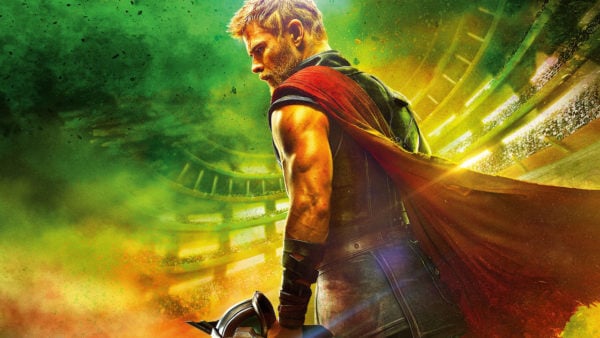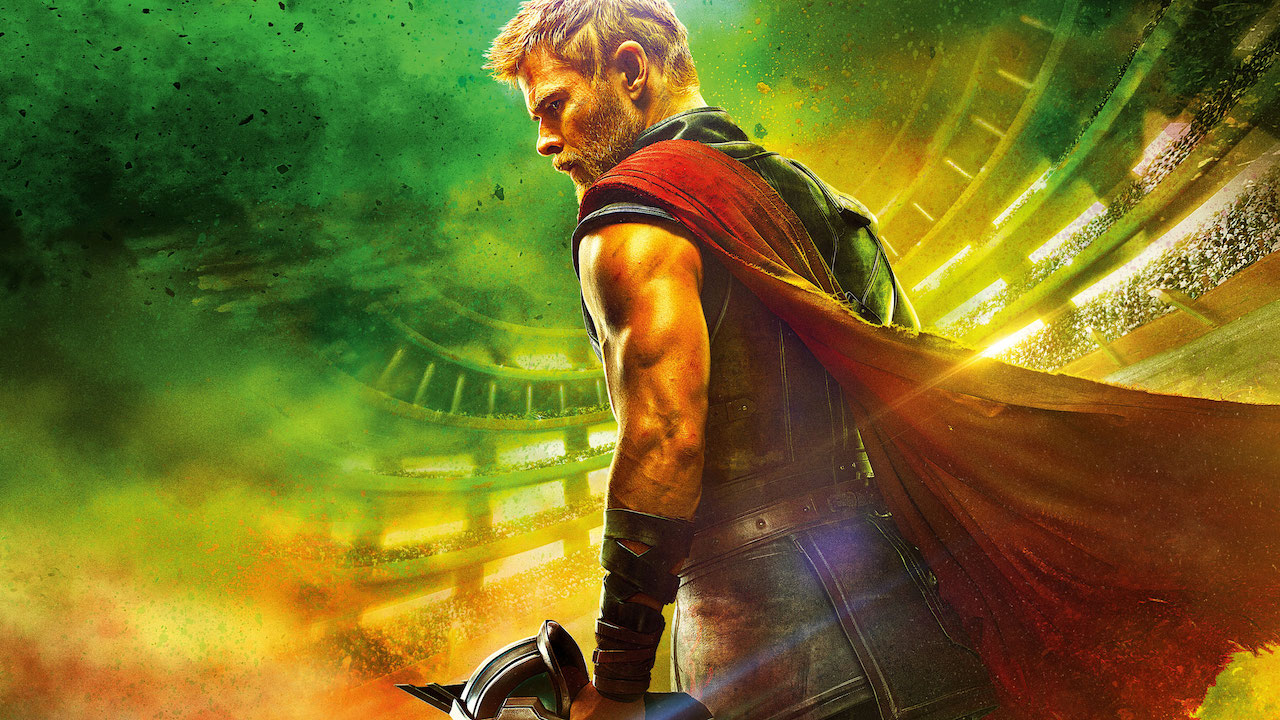
The now-familiar trailer song “In the Face of Evil” appears twice in “Thor: Ragnarok.” The first time, it frames a rollicking fight scene that sees Thor delightedly twirling his hammer through a sea of undead foes, the song’s pumping guitars filling both the audience and the Norse hero with gleeful energy.
But the second time “In the Face of Evil” rears its head-banging chords, it serves as a backdrop to the best fight scene in the Marvel Cinematic Universe.
Without spoiling its contents, that second scene is the embodiment of “Thor: Ragnarok.” It’s colors and explosions that seemingly come out of nowhere, it’s slow-mo used as well as any action film since “300,” it’s pure style, pure glee and pure fun. Director Taika Waititi’s first foray into the Marvel films is exactly what the genre needed. Paired with “Spider Man: Homecoming,” “Thor: Ragnarok” represents a shift away from light-hearted action movies to full-on comedy blockbusters.
And make no mistake, despite its extravagant adrenaline-pumping action, “Thor: Ragnarok” is pure comedy. We’re treated to a rock monster with a New Zealand accent who aims to start history’s politest revolution. We see a Valkyrie drunkenly stumble before tripping into the corpse of some rotting beast. We see the Grandmaster (once again taken up by Jeff Goldblum, who finally gets the screen time he deserved in the first “Guardians of the Galaxy”) chuckle at the mention of “Ass-gard.” “Ragnarok” welcomes anybody who enjoys a quality immature chortle with open arms, but those looking for sophistication should steer clear.
“Ragnarok” wastes no time leaping into the laughs, opening with Thor trying to have a cordial conversation with a massive fire demon while slowly spinning from a dangling chain. Eric Pearson’s script dawdles only momentarily to show us Hela (Cate Blanchett), the goddess of death, crush Thor’s hammer and send him reeling off into space to a planet of junkers, cutthroats and football-esque gladiator fights. His hammer lost and his hair sheared (the heavy-handed Sampson reference does not go unnoticed), Thor is united with Hulk for what can only be described as the most bizarre – yet surprisingly charming – buddy comedy since “22 Jump Street.” Thor and Hulk are easily the most purely comedic, one-dimensional characters in the Marvel Cinematic Universe, but “Ragnarok” sees this as an advantage, playing to their simplistic sweetness and jovial back-and-forth banter.
The planet Sakaar is their playground for the musclebound duo to smash and crash through the ratchet buildings and their masked Jawa-like inhabitants. It’s easily one of the most colorful settings in a Marvel movie, far more exciting than the drab browns and blacks of the appropriately named “Dark World” from Thor’s previous mediocre adventure. Marvel movies have been doing an incredibly authentic job of capturing the combination of zaniness and heart found in Stan Lee’s comic-book prose, but “Thor: Ragnarok” is the first to bring to life the pastel, nearly surreal aesthetic of Lee’s equally influential partner, artist Jack Kirby. It’s a visually rich world with enough Easter eggs to keep hardcore fans searching for years to come, and with more minute quirky detail than can ever be appreciated after only one viewing.
“Ragnarok” only stumbles with Cate Blanchett’s Hela, the type of shallow, generic, capital-E “Evil” villain that’s (rightfully) earned the MCU so much criticism. She’s almost too brutal for the film’s otherwise light tone, and considering she concocts her galaxy-dominating schemes on an entirely different planet from the protagonists, she feels strangely absent for most of the film. Thor (and friends) clash with her directly only twice, once at the beginning and once at the end, leaving the antagonist role to be filled by the far more entertaining, endlessly showy Grandmaster.
Kiwi rock monster Korg (played by none other than the director himself) best captures the gist of “Thor: Ragnarok” when he says that “the only thing that that makes sense here is that nothing makes sense.” With the God of Thunder’s latest escapade, it never has to. It’s anti-“Civil War,” so obsessed with its own relentless sense of fun that it never lets misplaced emotional drama drag it down from its heavenly realm. This is what blockbusters have always wanted to be but rarely are; it plasters a smile on your face in the opening moments and keeps it glued there through to the end-credits scene. Not only is it an electrifying jolt of life back into the floundering superhero genre, but taken purely on its own merits, “Thor: Ragnarok” is clearly the strongest there is.
Contact Noah Howard at noah364 ‘at’ stanford.edu.
